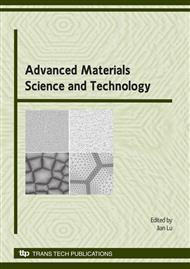p.111
p.117
p.123
p.129
p.137
p.143
p.149
p.155
p.163
A Method for Improving Compressive Residual Stress of Small Holes Surface by Water-Jet Cavitation Peening
Abstract:
As a novel surface strengthening technique, Water-jet cavitation peening has been applied to improve the fatigue life by inducing the compressive residual stress in the near surface layer of mechanical components. Compared with conventional shot peening, one advantage of WCP is that the complicated and tiny surface can be peened more easily. In this study, the small holes with various diameters and depths in the SUS304 stainless steel specimens were treated by WCP. In order to estimate its strengthening capability to the small holes, the surface residual stress and the depth distributions in the near surface layer of the small holes were measured by X-ray diffraction method. The experimental results show that WCP can successfully improve the near surface compressive residual stress of small holes. The maximum of surface compressive residual stress of WCP state is up to around –450 MPa. The dept of compressive residual stress zone is up to around 125 μm.
Info:
Periodical:
Pages:
137-142
DOI:
Citation:
Online since:
March 2009
Authors:
Price:
Сopyright:
© 2009 Trans Tech Publications Ltd. All Rights Reserved
Share:
Citation:


